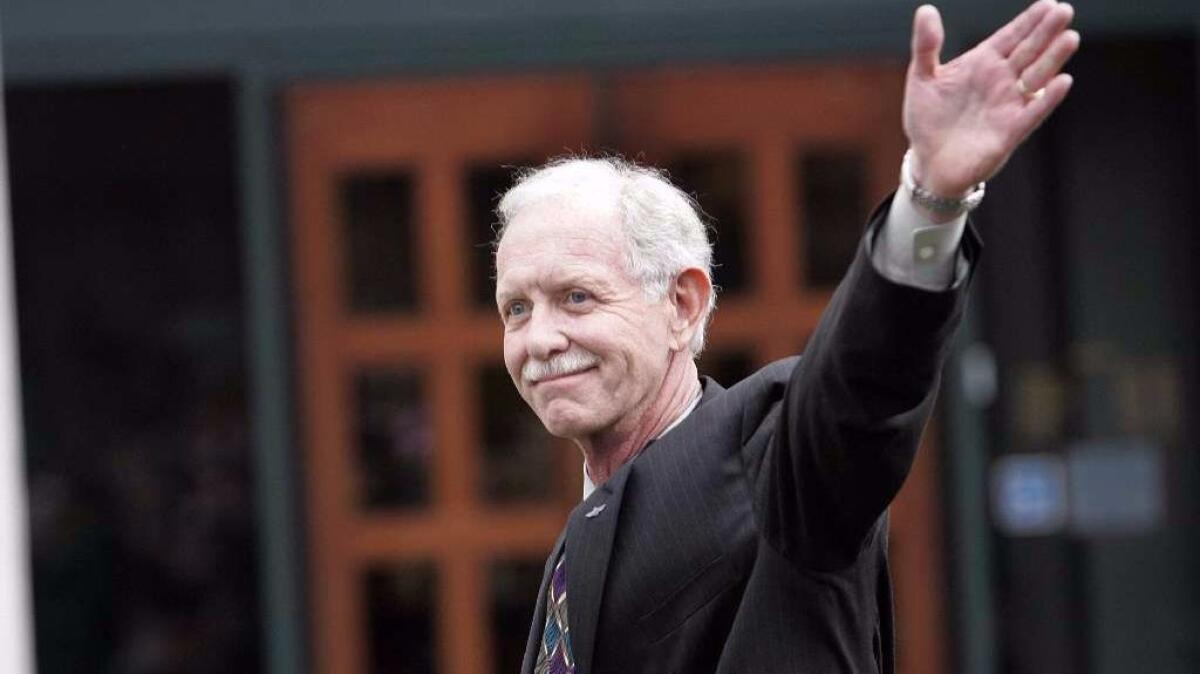Do you agree with Sully or Steve Forbes on the plan to privatize the U.S. air traffic control system?

- Share via
Both opponents and supporters of a proposal to turn over the nation’s air traffic control system to a private, nonprofit organization now have celebrity spokesmen to make their case.
The plan has been around for years, but it gained new momentum when it was included in a funding bill by the Trump administration.
Under the concept, the Federal Aviation Administration would turn control of the system over to a panel that would include representatives from airlines, pilot and flight attendants unions and local leaders. Fees from airlines and passengers would fund staffing, maintenance and upgrades.
Canada, Britain, France, Germany, Australia and New Zealand have turned over day-to-day management of their systems to private businesses or independent agencies with at least partial government ownership.
The most recognized opponent of the idea is Chesley “Sully” Sullenberger, the US Airways pilot who landed a passenger jet on the Hudson River in 2009. The so-called Miracle on the Hudson was depicted in the 2016 movie “Sully” starring Tom Hanks.
Sullenberger recorded an anti-privatization ad, saying the proposal puts profits ahead of safety. “We can’t trust the people who made your seats smaller to run ATC,” he says in the ad. ATC is short for air traffic control.
The celebrity champion of the privatization idea is millionaire Steve Forbes, the publishing executive and former presidential candidate, who said privatizing the air traffic control system would speed up the modernization of a “dysfunctional” system.
He wrote an article for Fox News last week, saying the move would “rescue reform efforts from stifling FAA bureaucracy, federal procurement and personnel rules and partisan politics.”
To read more about the travel and tourism industries, follow @hugomartin on Twitter.
More to Read
Inside the business of entertainment
The Wide Shot brings you news, analysis and insights on everything from streaming wars to production — and what it all means for the future.
You may occasionally receive promotional content from the Los Angeles Times.











